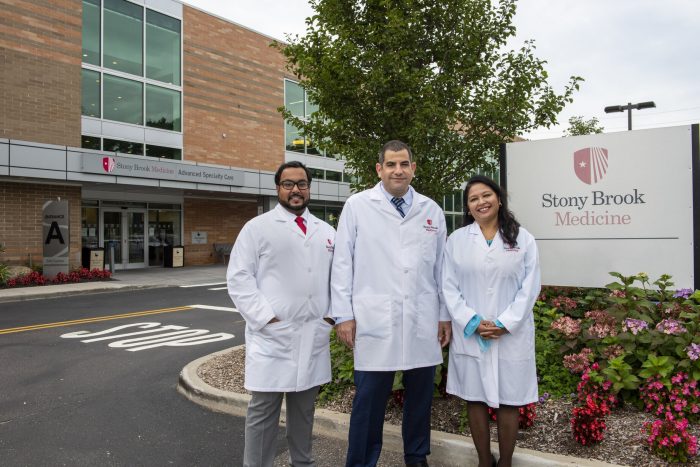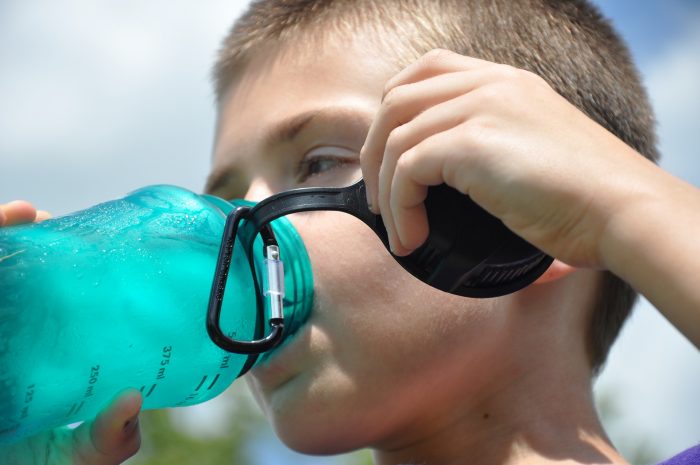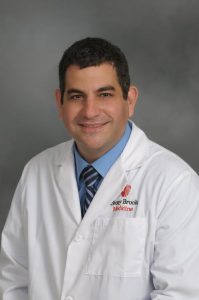Specialty heart care is once again expanding at Stony Brook Medicine with the addition of the Center for Advanced Lipid (Cholesterol) Management at the Stony Brook University Heart Institute, the first of its kind in Suffolk County. Lipids are fatty substances in the blood that can lead to blockages in heart arteries. The new center will use testing tailored to each patient to get a complete understanding of inflammatory markers, lipid profile, apolipoprotein B levels and more. From there, Stony Brook experts can develop a cardiac disease prevention and cholesterol management plan.
“Our goal is to provide earlier diagnosis so that our patients can be proactive and prevent premature heart disease,” said Lipid Center Director On Chen, MD, who is also the Director of the Cardiac Care Unit (CCU) at Stony Brook Medicine. “As an interventional cardiologist, I treat patients with severe disease and blockages to the heart, and I’d much rather see patients early to be aggressive with prevention. Today, there is so much we can do to get ahead of heart disease.”
With clinic hours available in East Setauket and Commack, the Lipid Center is staffed with cardiologists who have specialized training and certification through the American Board of Clinical Lipidology. The opening coincides with September’s National Cholesterol Education Month, which aims to raise awareness about cardiovascular disease, high cholesterol levels, and stroke.
“At Stony Brook Heart Institute, our cardiac specialists work to fight heart disease from every angle, and the new Center for Lipid Management is an important part of bringing advanced management of cholesterol disorders to our patients in a holistic and comprehensive way,” said Hal A. Skopicki, MD, PhD, Co-Director, Stony Brook Heart Institute; Chief, Cardiology; and Ambassador Charles A. Gargano Chair, Cardiology, Renaissance School of Medicine at Stony Brook University. “Our clinicians are not only involved in the treatment but are also actively involved in the science of lipids and the role they play in our health and disease — so that we can be on the forefront of bringing best-in-class knowledge to our patients and community.”
High cholesterol is a major risk factor for heart disease, which is the leading cause of death in the United States. High cholesterol has no symptoms, so patients might not know that their cholesterol is too high – unless it’s measured by a doctor with a blood test.
“While there are risk factors that are not within our control — such as age or family history — there are many crucial factors that we can influence,” said Tahmid Rahman, MD, Associate Director of the Center for Advanced Lipid (Cholesterol) Management. “Even if you already have cardiovascular disease, it’s not too late to lower your risk. In fact, an effective lipid-lowering treatment plan can be lifesaving.”
“For patients who have already suffered a heart attack, had coronary artery bypass surgery or received stenting of their arteries, the need for optimum cholesterol management may even be higher as the consequences of a heart attack in these patients may be even more dangerous,” adds Dr. Chen.
About Stony Brook University Heart Institute:
Stony Brook University Heart Institute is located within Stony Brook University Hospital as part of Long Island’s premier university-based medical center. The Heart Institute offers a comprehensive, multidisciplinary program for the prevention, diagnosis and treatment of cardiovascular disease. The staff includes full-time and community-based, board-certified cardiologists and cardiothoracic surgeons, as well as specially trained anesthesiologists, nurses, physician assistants, nurse practitioners, respiratory therapists, surgical technologists, perfusionists, and other support staff. Their combined expertise provides state-of-the-art interventional and surgical capabilities in 24-hour cardiac catheterization labs and surgical suites. And while the Heart Institute clinical staff offers the latest advances in medicine, its physician-scientists are also actively enhancing knowledge of the heart and blood vessels through basic biomedical studies and clinical research. To learn more, visit www.heart.stonybrookmedicine.







